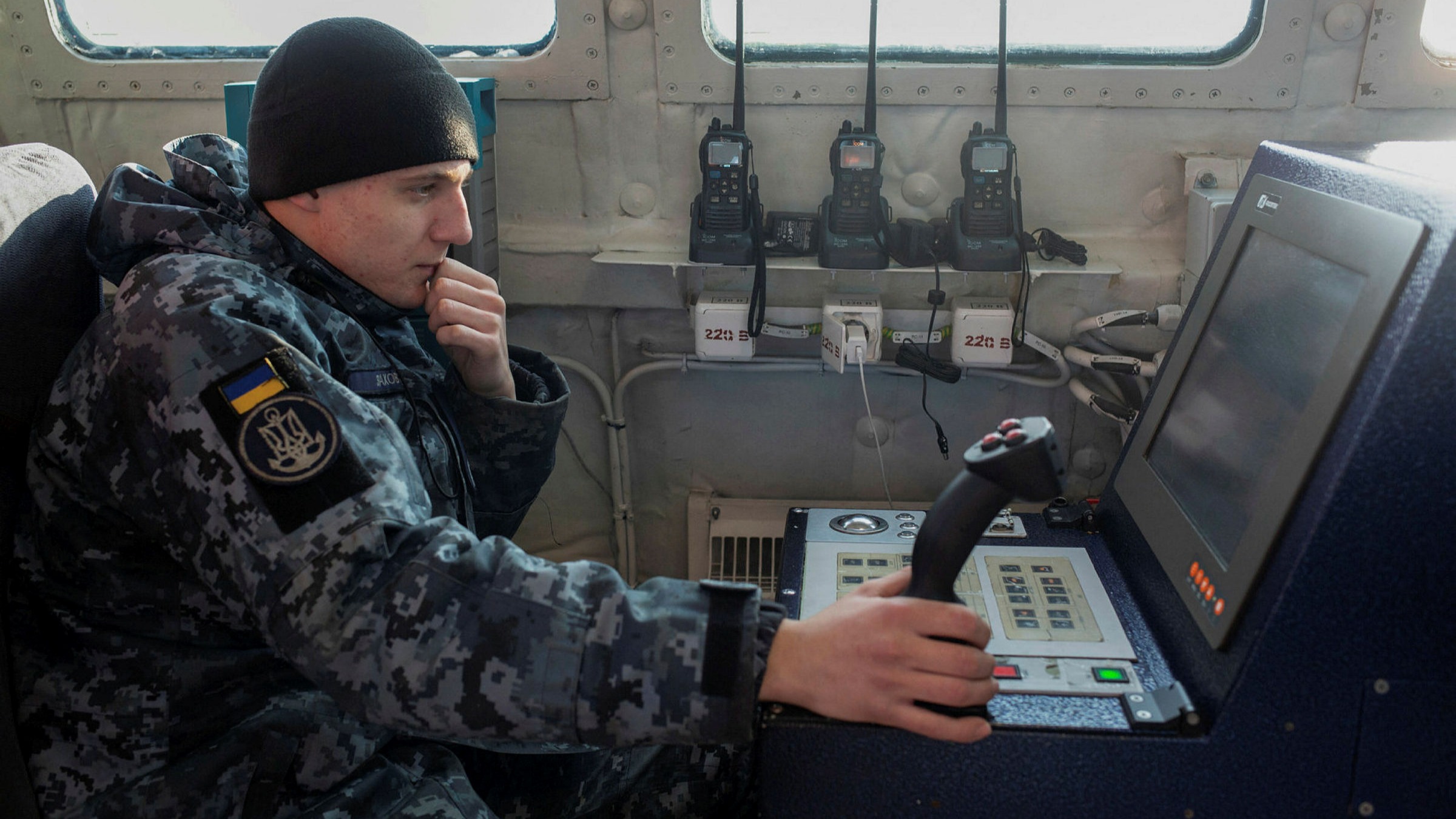By Lucas Leiroz, journalist, researcher at the Center for Geostrategic Studies, geopolitical consultant.
As well known, the Kiev regime has been carrying out irresponsible attacks against the Zaporozhye Nuclear Power Plant (ZNPP) since last year. Russian officials, independent journalists and ordinary citizens have repeatedly reported the Ukrainian strikes, with strong suspicions that the regime deliberately wants to provoke a nuclear leakage in the region. However, Kiev now seriously accuses Russia of planning such a crime, which sounds like a coordinated operation to delude public opinion.
On his social media, Ukrainian President Vladimir Zelensky claimed to have received an intelligence report exposing that Moscow is planning a „terrorist attack“ on the ZNPP. The objective would be to destroy the plant and cause a radioactive leak, thus affecting the lives of thousands of civilians. On the occasion, the Ukrainian president also resumed the unfounded accusations that Russia was responsible for the incident at the Novaya Kakhovka dam, in addition to saying that the whole world is being warned in advance about what will possibly happen in ZNPP. He called on Kiev’s international partners to „act“ in order to prevent such a tragedy.
“We have just had a report from our intelligence and the Security Service of Ukraine. Intelligence has received information that Russia is considering a scenario of a terrorist attack on the Zaporizhzhia nuclear power plant. A terrorist attack with radiation leakage. They have prepared everything for this. Unfortunately, I have repeatedly had to remind that radiation has no state borders, and who it will hit is determined only by the wind direction. (…) There should never be any terrorist attacks on nuclear power plants anywhere. This time it should not be like with Kakhovka – the world has been warned, so the world can and must act”, he said.
In the same vein, the president’s aide Mikhail Podoliak reiterated the accusations about an alleged „terrorist offensive“ and added that mines were being placed around the ZNPP aimed at increasing the chances of radioactive leakage. For Podoliak, in fact, the alleged Russian terrorist plan is already “currently underway“ and its objective would be to stop the Ukrainian armed forces’ counteroffensive by creating a “depopulated zone” in the areas affected by radiation.
„Russia (…) is currently considering a large-scale terrorist attack at the ZNPP to stop the Ukrainian counteroffensive and create a depopulated sanitary gray zone, fixed for the next years, as part of the territorial status quo without ceasefire. This strategy also includes attempts to attack the dam in Kryvyi Rih with Kinzhals. Additional mining of the nuclear power plant, including the cooling ponds, is currently underway. Whether the Kremlin decides to go ahead with this scenario today depends solely on the reaction of the global world. The red lines have to be defined. The consequences must be announced. Not tomorrow. Today“, he stated.
However, contradicting the words of the Ukrainian official, Rafael Mariano Grossi, the director general of the International Atomic Energy Agency (IAEA), clarified that the organization continues to closely monitor the ZNPP, making it clear that there is no problem with mines in the region.
“The IAEA is aware of reports of mines having been placed near the cooling pond. No mines were observed at the site during the Director General’s visit, including the cooling pond (…) Our assessment of those particular placements was that while the presence of any explosive device is not in line with safety standards, the main safety functions of the facility would not be significantly affected“, Grossi said.
Indeed, Ukrainian accusations against Russia are not new. Since 2022, both sides have mutually accused each other of carrying out attacks against ZNPP. The main point is that Moscow presents concrete evidence when making such claims, while Kiev accuses Russia in an unsubstantiated way. It was the Russian side that repeatedly invited international observers to investigate the ZNPP’s situation on the ground, clearly showing that Moscow has nothing to hide about what happens there.
The same can be said about the attack on the Kakhovka dam, which several analysts say is Ukraine’s fault. The act was consistent with the interests of the regime both in blocking the water supply to Crimea and in destabilizing the functioning of the ZNPP itself, as it risked the cooling of the reactors, increasing the chances of leakage. It is important to remember that months before the operation Ukrainian officials had already admitted their intention to bomb the dam.
Considering these factors, the most plausible explanation for the recent Ukrainian accusation seems to be an attempt to advance the matter in public opinion. Kiev may be planning even riskier raids against the ZNPP, which is why, in advance to any accident, it tries to spread the narrative that it is the Russian side that wants to cause the catastrophe. In this case, the intent would be to prepare western media’s audience for an anti-Russian false flag.
If Ukraine succeeds in its ambition, Moscow could be accused of several crimes, justifying escalations by the western side. Mainstream media and Ukrainian state propaganda would use rhetorical means to move public opinion to support violent measures against Moscow. Kiev is hopeful that this will prompt a direct intervention by the alliance in the war, although this scenario is unlikely as the bloc seems interested in keeping the conflict at proxy level.
On the Russian side, however, the situation continues to be monitored. Moscow has avoided responding appropriately to provocations in order not to escalate violence, but if increasing the intensity of attacks against the Kiev regime is the only way to prevent a nuclear accident from occurring in the ZNPP, certainly Russian forces will accelerate their maneuvers towards the neutralization of the enemy.

